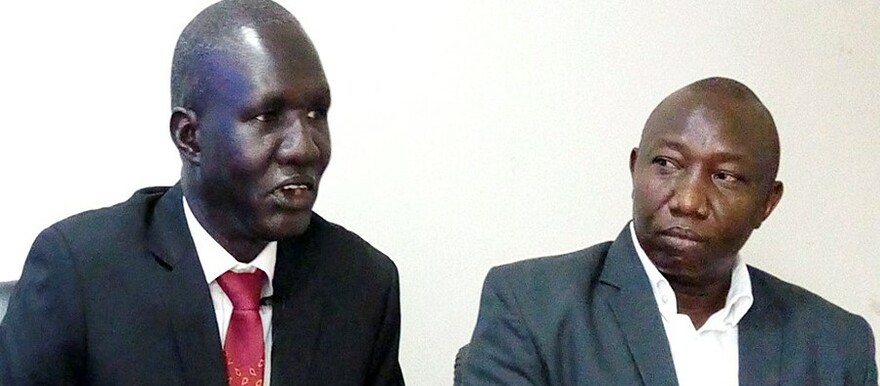An advocate of the South Sudan High Court has condemned the recent order by the South Sudan Central Bank to freeze the bank accounts of individuals and organizations linked to the People’s Coalition for Civil Action (PCCA) – a coalition of activists calling for political change, saying it is illegal.
On Wednesday, the central bank directed all commercial banks to freeze and block bank accounts of Abraham Awolich, Rajab Mohandis, Wani Michael, James David Kolok, and Kuel Aguer Kuel.
Reacting to the directive, Phillip Anyang, an advocate of the High Court in Juba, said the directive goes against the laws of South Sudan.
"The actions of the Central Bank of South Sudan are contrary to the laws of South Sudan. Anyone suspected of having committed a crime, anybody believed to have suspicious deeds or committed an offense, it is the process of the law that is required. I may be found responsible for having committed an offense or a financial crime of such nature and then the law will take its course. It is only the courts of South Sudan that are mandated to give such directives after due process," Anyang said.
According to Anyang, a case should be opened against the five who were prominent during the calls for anti-government protests, and the law is allowed to take its course.
The advocate further explained that only a court of law has the mandate to order such actions.
"The relationship between a customer and a bank is purely between the two and no one from anywhere else except the courts of law that can question, order, direct and freeze such accounts. Anything contrary to that falls short of the provisions of the law, falls short of the rightful way of doing things, falls short of following the rightful legal procedures. The due process of the law is the main focus that any institute should subject itself to," he stressed.
The financial regulator also directed the commercial banks in South Sudan to freeze and block all the bank accounts of four organizations; Sudd Institute, Organization for Responsive Governance, Okay Africa Foundation, and Foundation for Democracy and Accountable Governance, all linked with the PCCA.
Anyang says this, too, is against the law.
"The two persons, owners of an institution, staff of an institution and the institution, these are separate entities and they should be treated distinctively and separately. If whoever works at Sudd Institute is found or suspected or implicated in some suspicious activities, that should not affect the institution. Because they are two separate persons," Anyang said. "The Company’s Act is very clear, the NGOs Act is very clear, the constitution is very clear, the Banking Act is very clear, so why would we not do things within the law?"
He advised that if the individuals are suspected criminals, the process should begin with a report at the police station, after which the suspects are presented before a court of law. If found guilty, the court will make its ruling.
Anyang further reminded all state institutions that institutions are not above the law but should be guided by the constitution in its dealings.
In August, the coalition of activists called for protests against President Salva Kiir's government. However, there was no sign of street gatherings on the date set for protests across the country. Some activists said they were in hiding for security reasons. The PCCA denounced what it termed “a bankrupt political system that has become so dangerous and has subjected our people to immense suffering”.




